Understanding the Critical Transition from PHP to Independent Living
Completing a Partial Hospitalization Program (PHP) signifies a pivotal milestone in recovery from mental health or substance use disorders. However, the journey does not end with PHP; transitioning into independent living requires careful planning, skill development, and ongoing support. This article provides a comprehensive roadmap to facilitate a successful move from structured care to a self-reliant lifestyle, emphasizing resources, readiness indicators, and essential strategies for individuals and support networks.
The Role of PHP as a Stepping Stone to Independence
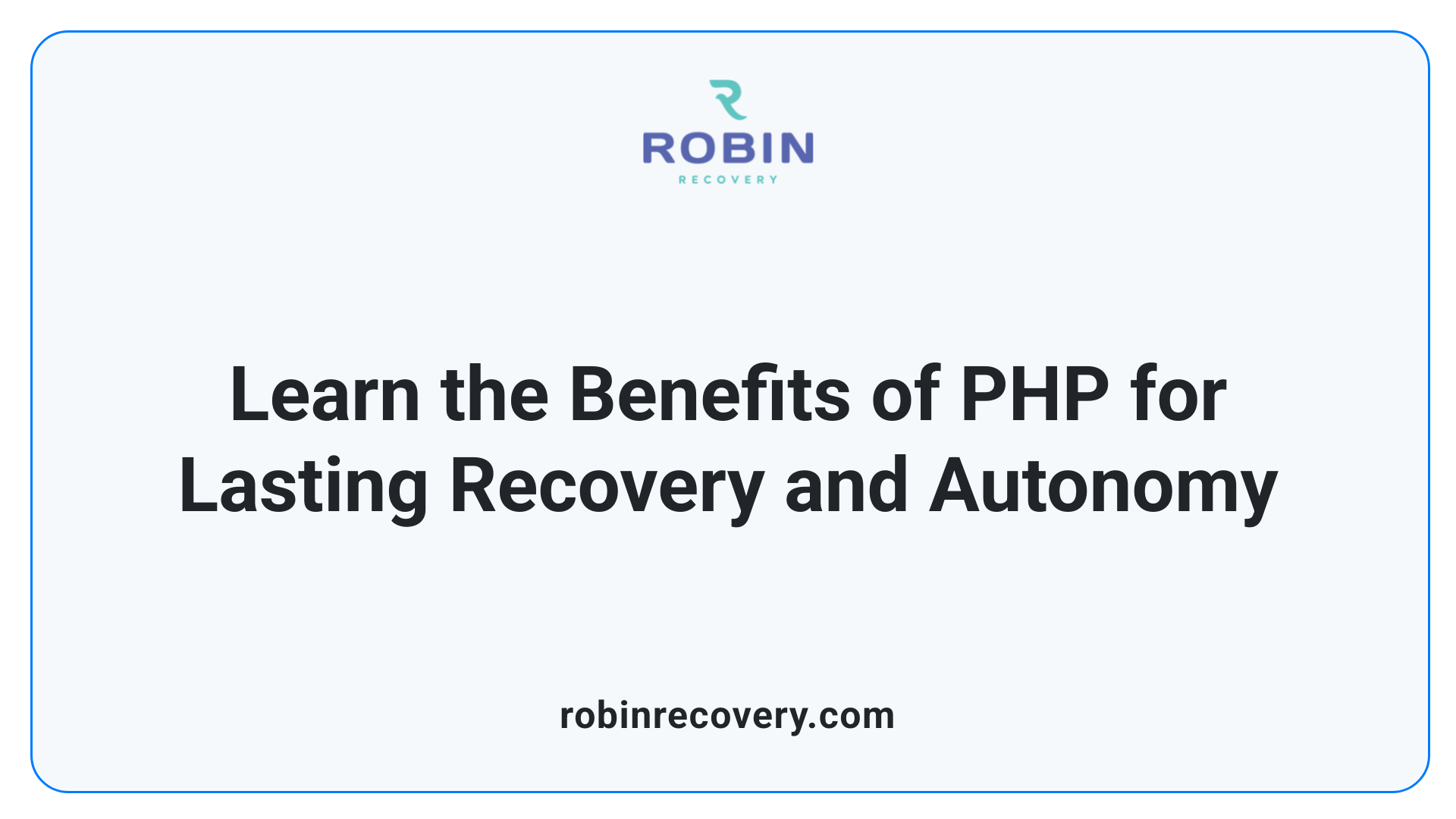
What is the purpose and benefit of the Partial Hospitalization Program (PHP)?
A PHP is designed to offer intensive, structured mental health and substance use treatment while allowing individuals to live at home. It serves as a bridge between inpatient care and full independence, providing ongoing support and skill development. Participants engage in therapy, life skills training, and coping strategies during their time in PHP.
The primary benefit of PHP lies in its ability to maintain progress made in inpatient settings. It offers stability, continuity of care, and an environment where clients can practice daily living skills in real-world settings. This foundation helps individuals gradually regain independence while still receiving professional guidance.
Why is ongoing support and planning crucial after completing PHP?
Transitioning from PHP to independent living can be challenging. Continued support through aftercare plans ensures individuals do not relapse or struggle with setbacks. Post-PHP care often includes step-down programs like Intensive Outpatient Programs (IOPs), ongoing therapy, support groups, and medication management.
Planning that begins during PHP sets realistic goals for employment, education, and social integration. Regular check-ins with healthcare providers and support networks boost confidence and help address emerging issues early.
How does life skills training within PHP contribute to independence?
Life skills training is a core component of PHP, focusing on essential areas such as coping with triggers, managing stress, and rebuilding relationships. Clients learn to identify triggers—like stressful situations or environments linked to past substance use—and use relapse prevention techniques such as calling support persons, grounding exercises, and urge surfing.
Additional skills covered include managing finances, navigating transportation, cooking, and maintaining personal hygiene. These practical skills prepare individuals for everyday responsibilities, fostering a sense of autonomy and readiness for independent living.
| Aspect | Description | Resources/Support Options |
|---|---|---|
| Skills development | Focus on daily living, relapse prevention, and coping strategies | Community programs like CILs, educational workshops, and therapy sessions |
| Transition support | Preparation for housing, employment, and social relationships | Federal initiatives like WIOA, Medicaid supports, family and peer support |
| Access to resources | Assistance with housing, healthcare, and employment | State and local agencies, community organizations, clinical therapists |
The transition from PHP to independent living involves multiple facets—acquiring practical skills, establishing support networks, and ongoing planning—each playing a crucial role in long-term success.
Skill Development and Routine Establishment for Growth
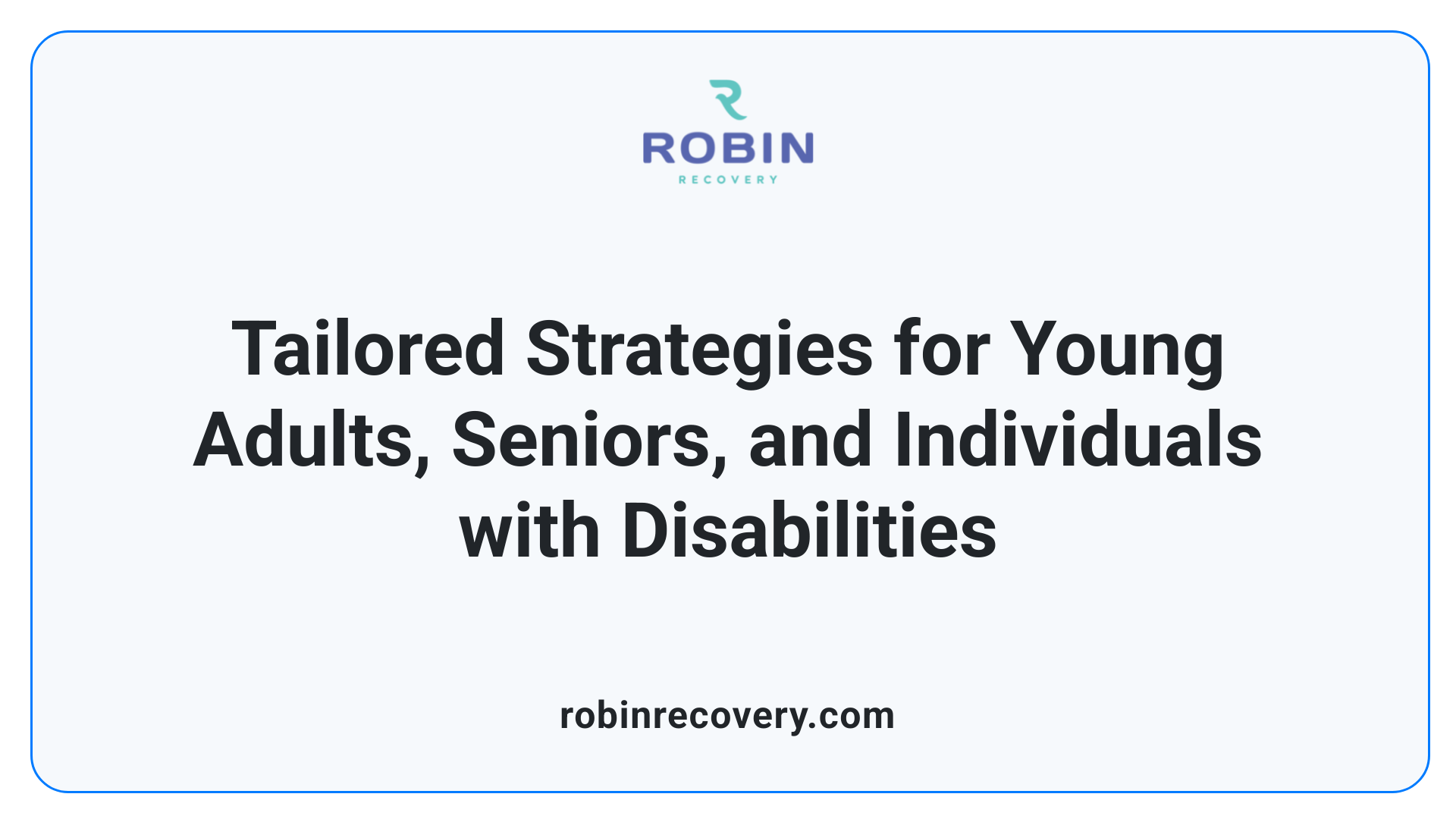
How can young adults, individuals with disabilities, or seniors manage the transition to independent living?
Managing the move toward independence involves a combination of skill-building, planning, and support. First, individuals should focus on acquiring essential life skills such as managing money, cooking, cleaning, and understanding how to navigate transportation systems. These skills provide a foundation for daily life activities.
Creating a structured daily routine helps maintain stability and supports health and well-being. This routine might include work or school commitments, regular meals, sufficient sleep, exercise, therapy sessions, hobbies, and mindfulness practices.
Relapse prevention and trigger management are vital, especially during this transitional phase. Learning to identify triggers—like high-stress situations or environments linked to past substance use—and employing strategies such as calling trusted support persons, grounding exercises, or practicing urge surfing can help sustain recovery.
For young adults, individuals with disabilities, and seniors, the process should be tailored to personal needs and preferences. Engaging with community resources, support organizations, and professionals can provide guidance and facilitate smoother transitions. It's also beneficial to communicate gradually with family, friends, and new networks about needs and boundaries. Regular self-reflection and understanding one's rights and options empower individuals to build confidence and independence. Using these strategies, they can confidently take steps toward managing everyday responsibilities and maintaining their well-being.
Assessing Readiness and Planning the Transition Process
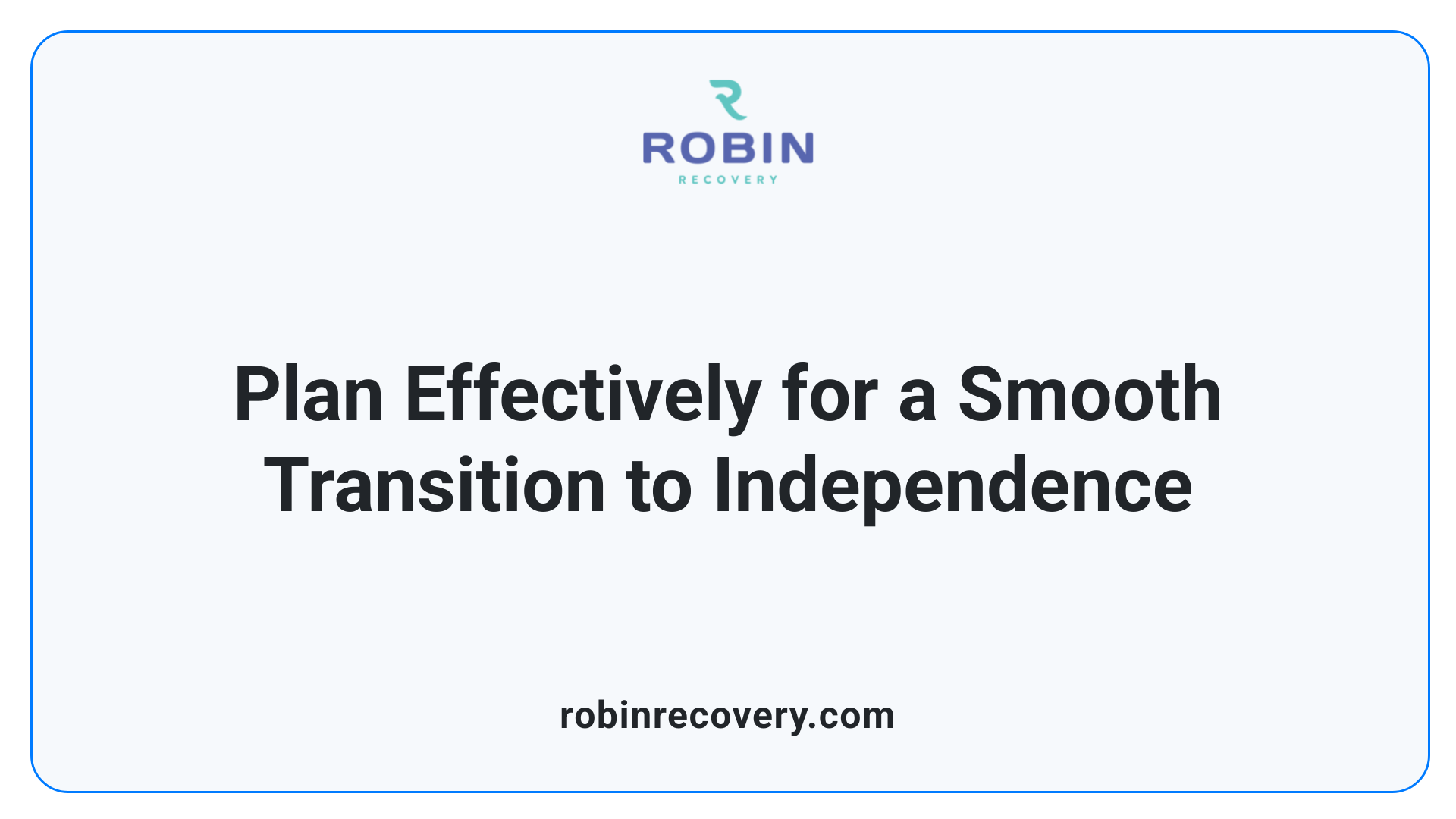
What signs indicate a person is ready for independent living after treatment or structured programs?
Recognizing when someone is prepared to transition to independent living is vital for a successful and sustainable move. Typically, signs include their competence in managing daily basic routines. This encompasses skills like maintaining a clean living space, preparing nutritious meals, using transportation safely, and managing personal finances.
As individuals mature or recover from health issues, these tasks might become more challenging. However, a readiness indicator is the person’s initiative to seek social engagement, which helps prevent loneliness and social isolation often linked with mental health or recovery struggles.
Thinking ahead about future health needs, developing emergency plans, and ensuring safety measures are in place within their living environment also point toward readiness. Accessibility features and available healthcare support within the community environment are crucial considerations.
Furthermore, consistent employment or educational involvement demonstrates stability and reliability. Maintaining a supportive network of friends, family, or mentors reassures a person’s capacity to handle the responsibilities of independent living. An inner motivation for freedom coupled with a responsible attitude towards personal safety and community participation underscores their preparedness.
Transition planning should be tailored to each individual, considering their specific skills, health status, and support systems, to foster a smooth and confident move into independent living.
Resources, Programs, and Legal Considerations
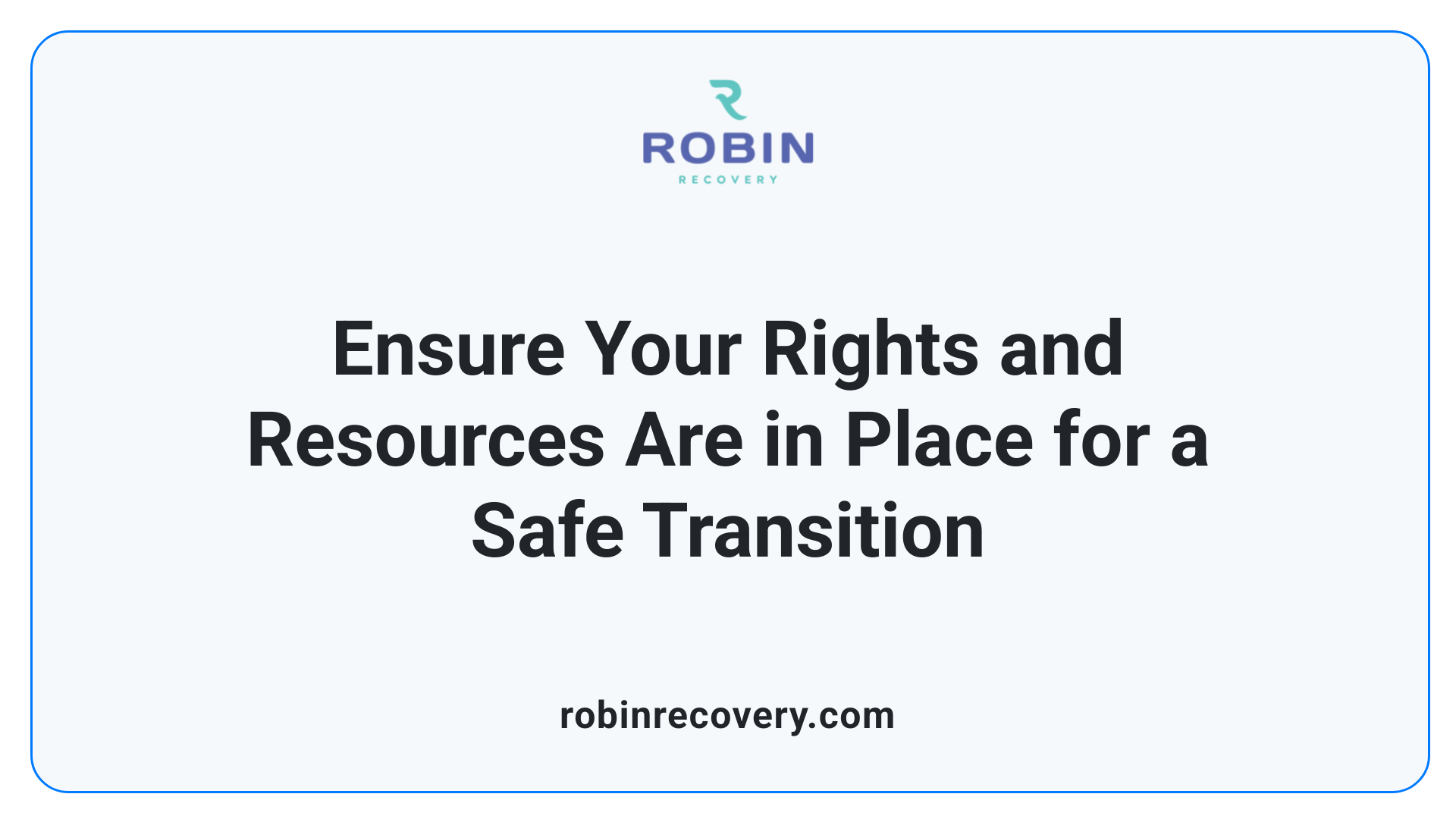
How do financial planning, Medicaid eligibility, and legal considerations impact the transition to independent living?
Effective transition planning to independent living relies heavily on understanding and managing financial, Medicaid, and legal factors.
Financial planning is essential to ensure that seniors have enough resources for housing, healthcare, and daily expenses. This process includes evaluating sources such as Social Security, pensions, retirement savings, and investments. Proper financial management helps prevent crises and supports long-term stability.
Medicaid eligibility plays a critical role in covering healthcare costs and certain housing expenses, especially for those with limited income. To qualify, individuals often need to meet specific asset and income criteria, which requires careful legal and financial planning. Asset transfers and documentation need to be managed properly to avoid disqualification.
Legal considerations include reviewing and securing appropriate housing agreements, such as leases or purchase contracts. It’s also important to plan for estate management, including wills and power of attorney arrangements. Laws protecting against housing discrimination and ensuring accessibility are vital for safe, equitable living arrangements.
In addition, legal assessments of home modifications and in-home care contracts help ensure compliance and protect residents’ rights. Understanding these legal aspects helps individuals avoid potential pitfalls and ensures that their transition to independent or supported living is smooth and secure.
Altogether, a coordinated approach to financial, Medicaid, and legal planning makes it possible for individuals to transition confidently into new living situations that meet their health needs, financial capabilities, and legal rights.
Implementing Effective Transition Strategies and Support Systems
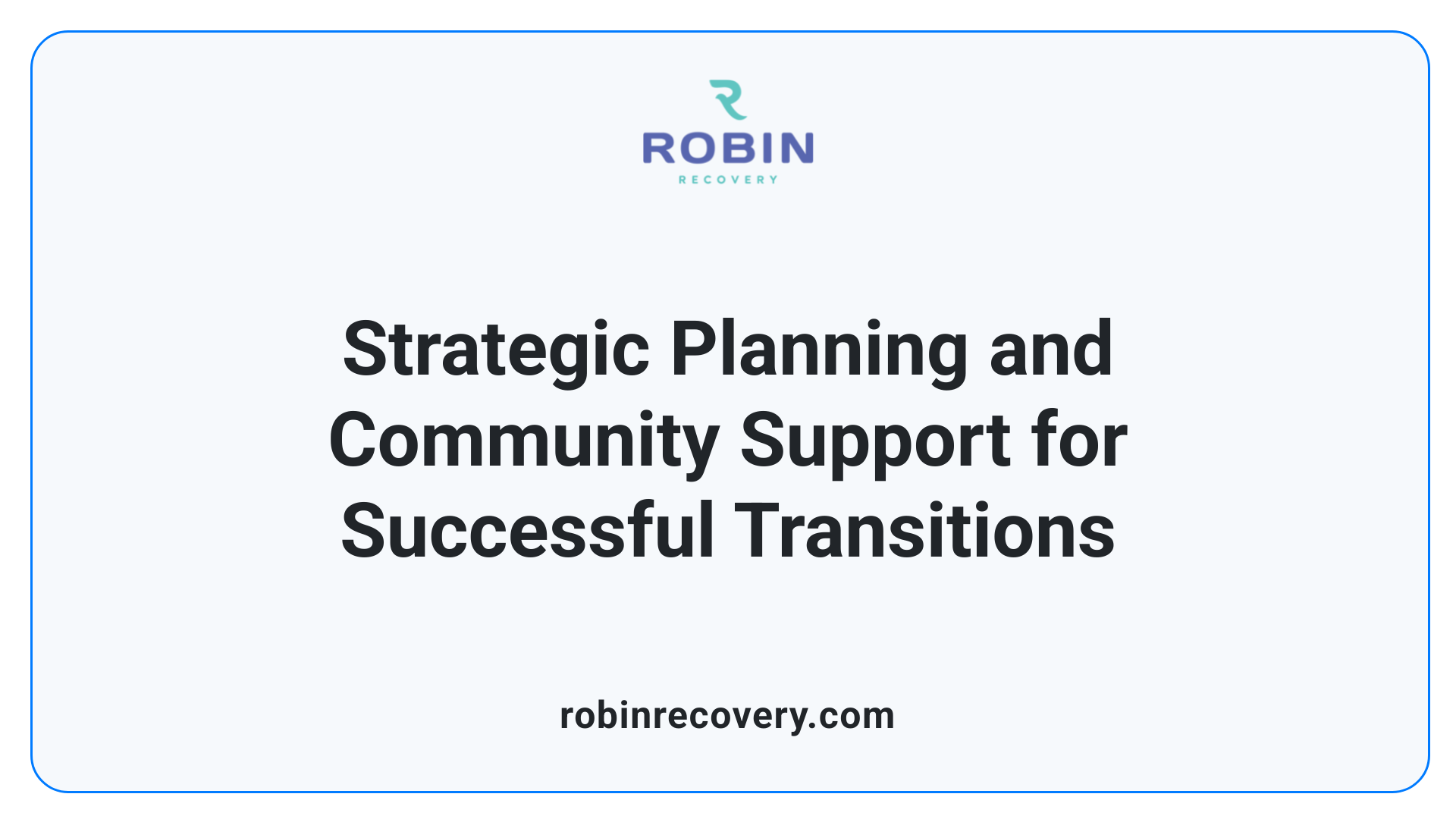
What are effective strategies and logistics for transitioning from structured environments to independent living?
Transitioning from a highly structured setting—such as inpatient programs or intensive support environments—to independent living can be complex. To ensure a successful move, it is vital to develop comprehensive plans that cover multiple facets of daily life.
A well-rounded transition plan includes addressing housing arrangements, employment or educational opportunities, and establishing a robust support network. Key skills like budgeting, cooking, hygiene, and self-care should be prioritized to build confidence and independence.
Utilizing community resources can significantly ease this process. Programs offered by organizations such as the WV Division of Rehabilitation Services or Centers for Independent Living provide valuable training and support.
Support networks—including family, mentors, and peer groups—are crucial. Family therapy during treatments can be beneficial for rebuilding relationships, which sustain long-term recovery and independence.
Systemic considerations are also essential. Collaborative planning involving stakeholders—clients, caregivers, service providers, and community agencies—helps tailor strategies that are fair, sustainable, and meet individual needs.
Employing technological tools such as impact assessments and participatory planning can identify potential challenges early on. These tools foster collaboration and transparency, making the transition smoother.
Finally, logistical planning should not be overlooked. This includes ensuring access to resources like transportation, healthcare, and employment support, and confirming housing stability. Preparing for these logistical elements promotes a stable and confident transition into independent living.
Empowering Long-Term Self-Sufficiency
Transitioning from PHP to independent living is a multifaceted process that requires early planning, skill-building, and robust support systems. By leveraging appropriate resources, developing essential life skills, and carefully assessing readiness, individuals can confidently navigate this significant life change. Community programs, legal and financial planning, and systemic support play pivotal roles in ensuring a smooth and sustainable transition. Ultimately, fostering independence not only enhances personal well-being but also promotes a sense of empowerment and resilience for long-term recovery and growth.
References
- Life After PHP: How to Maintain Recovery After Treatment
- Transition to Independent Living (TIL) - Academics
- Transitioning From Inpatient Treatment To PHP
- Independent Living/Skills
- How to Help a Child Transition into Independent Living
- Transitional Independent Living Program
- About the Program - Transition to Independent Living
- Choices
- Resources for Independent Living (RIL): Serving People with ...

.svg)

.svg)

.svg)
.svg)



































































































